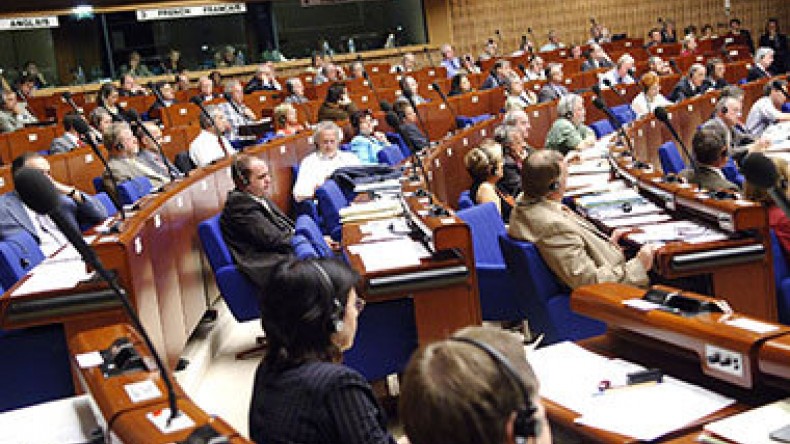
Azerbaijan opposition tells PACE about absence of democratic pre-election environment
Election commissions are under the authorities’ control in Azerbaijan, and the pre-election campaign for the upcoming parliamentary elections is carried out with violations, Musavat opposition party leader Arif Hajili told PACE mission delegates, according to the news portal Caucasian Knot.
The PACE delegation, which arrived in Azerbaijan on a pre-electorate visit, is led by Jordi Xuclà (Spain, ALDE). The delegation members are Franck Schwabe (Germany, SOC), Aleksandar Nikoloski (“The former Yugoslav Republic of Macedonia”, EPP/CD), Egemen Bagis (Turkey, EC) and Agustín Conde (Spain, EPP/CD), PACE co-rapporteur for the monitoring of Azerbaijan, according to the PACE website.
On 21 September 2015, the delegation had several meetings in the Azerbaijani Parliament. One of the meetings was held with Arif Hajili, the leader of the opposition party Musavat, a non-parliamentary party.
“I focused the guests’ attention on the problem of the political prisoners in Azerbaijan, on the absence of a democratic pre-election environment, the deficiencies of the electoral legislation, as well as of the lack of equal opportunities for a political struggle during the election campaign,” Arif Hajili told the correspondent of the Caucasian Knot.
He highlighted that the election commissions are controlled by the authorities. “The opposition has no access to the television and the radio. The freedom of assembly is limited. The opposition candidates face difficulties gathering the voters’ supporting signatures in the regions. In these circumstances, there can be no word about equal opportunities or even minimal standards of democratic elections,” the opposition leader said.
He called on the PACE representatives “to increase attention to the elections in Azerbaijan and the democracy and human rights issues in general.”
On 10 September 2015, the European Parliament passed a resolution that calls for targeted sanctions against Azerbaijani officials violating human rights. The draft was prepared by ALDE group and sparked a heated debate over the issue of putting it to the vote. The resolution was eventually passed by a vote of 365-202, with 72 abstentions. Later, on September 11, the Foreign Ministry of Azerbaijan said Azerbaijan will reconsider its relations with the EU. Malena Mard, the head of the European Union Delegation in Azerbaijan, was summoned to the Foreign Ministry.
Azerbaijan’s Parliamentary elections are scheduled on 1 November 2015. There were recent local reports about the authorities faking a growth of the number of “independent” candidates for the elections. The international agencies reportedly took up rather stern stance regarding the upcoming parliamentary elections. On 11 September 2015, Michael Georg Link, Director of the OSCE Office for Democratic Institutions and Human Rights (ODIHR), announced that, due to restrictions imposed by the Azerbaijani authorities, ODIHR had no choice but to cancel its mission to observe the country’s parliamentary elections. Earlier, ODIHR had reported about its intention to send 380 observers to Azerbaijan.
Related:
OSCE cancels deployment of ODIHR’s observation mission for parliamentary elections in Azerbaijan
Newsfeed
Videos






























